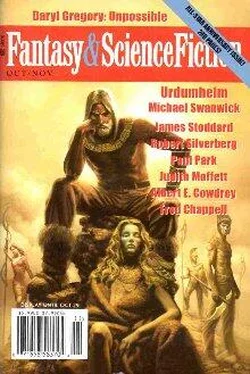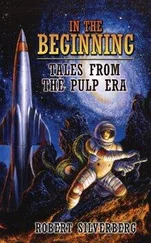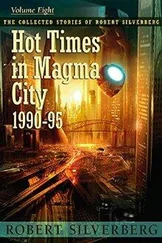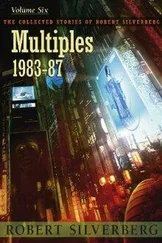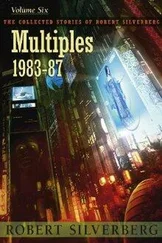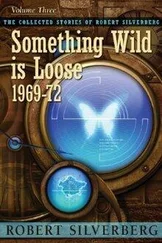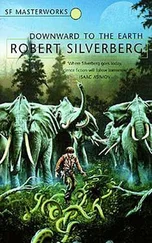Robert Silverberg - Against the Current
Здесь есть возможность читать онлайн «Robert Silverberg - Against the Current» весь текст электронной книги совершенно бесплатно (целиком полную версию без сокращений). В некоторых случаях можно слушать аудио, скачать через торрент в формате fb2 и присутствует краткое содержание. Год выпуска: 2007, Издательство: Spilogale, Inc., Жанр: Фантастика и фэнтези, на английском языке. Описание произведения, (предисловие) а так же отзывы посетителей доступны на портале библиотеки ЛибКат.
- Название:Against the Current
- Автор:
- Издательство:Spilogale, Inc.
- Жанр:
- Год:2007
- ISBN:нет данных
- Рейтинг книги:3 / 5. Голосов: 1
-
Избранное:Добавить в избранное
- Отзывы:
-
Ваша оценка:
- 60
- 1
- 2
- 3
- 4
- 5
Against the Current: краткое содержание, описание и аннотация
Предлагаем к чтению аннотацию, описание, краткое содержание или предисловие (зависит от того, что написал сам автор книги «Against the Current»). Если вы не нашли необходимую информацию о книге — напишите в комментариях, мы постараемся отыскать её.
Against the Current — читать онлайн бесплатно полную книгу (весь текст) целиком
Ниже представлен текст книги, разбитый по страницам. Система сохранения места последней прочитанной страницы, позволяет с удобством читать онлайн бесплатно книгу «Against the Current», без необходимости каждый раз заново искать на чём Вы остановились. Поставьте закладку, и сможете в любой момент перейти на страницу, на которой закончили чтение.
Интервал:
Закладка:
Against the Current
by Robert Silverberg
About half past four in the afternoon Rackman felt a sudden red blaze of pain in both his temples at once, the sort of stabbing jab that you would expect to feel if a narrow metal spike had been driven through your head. It was gone as quickly as it had come, but it left him feeling queasy and puzzled and a little frightened, and, since things were slow at the dealership just then anyway, he decided it might be best to call it a day and head for home.
He stepped out into perfect summer weather, a sunny, cloudless day, and headed across the lot to look for Gene, his manager, who had been over by the SUVs making a tally of the leftovers. But Gene was nowhere in sight. The only person Rackman saw out there was a pudgy salesman named Freitas, who so far as he recalled had given notice a couple of weeks ago. Evidently he wasn’t gone yet, though.
“I’m not feeling so good and I’m going home early,” Rackman announced. “If Gene’s around here somewhere, will you tell him that?”
“Sure thing, Mr. Rackman.”
Rackman circled around the edge of the lot toward the staff parking area. He still felt queasy, and somewhat muddled too, with a slight headache lingering after that sudden weird stab of pain. Everything seemed just a bit askew. The SUVs, for instance—there were more of the things than there should be, considering that he had just run a big clearance on them. They were lined up like a whopping great phalanx of tanks. How come so many? He filed away a mental note to ask Gene about that tomorrow.
He turned the ignition key and the sleek silver Prius glided smoothly, silently, out of the lot, off to the nearby freeway entrance. By the time he reached the Caldecott Tunnel twenty minutes later the last traces of the pain in his temple were gone, and he moved on easily through Oakland toward the bridge and San Francisco across the bay.
At the Bay Bridge toll plaza they had taken down all the overhead signs that denoted the FasTrak lanes. That was odd, he thought. Probably one of their mysterious maintenance routines. Rackman headed into his usual lane anyway, but there was a tolltaker in the booth—why?—and as he started to roll past the man toward the FasTrak scanner just beyond he got such an incandescent glare from him that he braked to a halt.
The FasTrak toll scanner wasn’t where it should be, right back of the tollbooth on the left. It wasn’t there at all.
Feeling a little bewildered now, Rackman pulled a five-dollar bill from his wallet, handed it to the man, got what seemed to be too many singles in change, and drove out onto the bridge. There was very little traffic. As he approached the Treasure Island Tunnel, though, it struck him that he couldn’t remember having seen any of the towering construction cranes that ran alongside the torso of the not-quite-finished new bridge just north of the old one. Nor was there any sign of them—or any trace of the new bridge itself, for that matter, when he glanced into his rearview mirror.
This is peculiar, Rackman thought. Really, really peculiar.
On the far side of the tunnel the sky was darker, as though dusk were already descending—at five-ten on a summer day?—and by the time he was approaching the San Francisco end of the bridge the light was all but gone. Even stranger, a little rain was starting to come down. Rain falls in the Bay Area in August about once every twenty years. The morning forecast hadn’t said anything about rain. Rackman’s hand trembled a little as he turned his wipers on. I am having what could be called a waking dream, Rackman thought, some very vivid hallucination, and when I’m off the bridge I better pull over to the curb and take a few deep breaths.
The skyline of the city just ahead of him looked somehow diminished, as though a number of the bigger buildings were missing. And the exit ramps presented more puzzles. A lot of stuff that had been torn down for the retrofitting of the old bridge seemed to have been put back in place. He couldn’t find his Folsom Street off-ramp, but the long-gone Main Street one, which they had closed after the 1989 earthquake, lay right in front of him. He took it and pulled the Prius to curbside as soon as he was down at street level. The rain had stopped—the streets were dry, as if the rain had never been—but the air seemed clinging and clammy, not like dry summer air at all. It enfolded him, contained him in a strange tight grip. His cheeks were flushed and he was perspiring heavily.
Deep breaths, yes. Calm. Calm. You’re only five blocks from your condo.
Only he wasn’t. Most of the highrise office buildings were missing, all right, and none of the residential towers south of the offramp complex were there, just block after block of parking lots and some ramshackle warehouses. It was night now, and the empty neighborhood was almost completely dark. Everything was the way it had looked around here fifteen, twenty years before. His bewilderment was beginning to turn into terror. The street signs said that he was at his own corner. So where was the thirty-story building where he lived?
Better call Jenny, he thought.
He would tell her—delicately—that he was going through something very baffling, a feeling of, well, disorientation, that in fact he was pretty seriously mixed up, that she had better come get him and take him home.
But his cell phone didn’t seem to be working. All he got was a dull buzzing sound. He looked at it, stunned. He felt as though some part of him had been amputated.
Rackman was angry now as well as frightened. Things like this weren’t supposed to happen to him. He was fifty-seven years old, healthy, solvent, a solid citizen, owner of a thriving Toyota dealership across the bay, married to a lovely and loving woman. Everyone said he looked ten years younger than he really was. He worked out three times a week and ran in the Bay-to-Breakers Race every year and once in a while he even did a marathon. But the drive across the bridge had been all wrong and he didn’t know where his condo building had gone and his cell phone was on the fritz, and here he was lost in this dark forlorn neighborhood of empty lots and abandoned warehouses with a wintry wind blowing—hey, hadn’t it been sticky and humid a few minute ago?—on what had started out as a summer day. And he had the feeling that things were going to get worse before they got better. If indeed they got better at all.
He swung around and drove toward Union Square. Traffic was surprisingly light for downtown San Francisco. He spotted a phone booth, parked nearby, fumbled a coin into the slot, and dialed his number. The phone made ugly noises and a robot voice told him that the number he had dialed was not a working number. Cursing, Rackman tried again, tapping the numbers in with utmost care. “We’re sorry,” the voice said again, “the number you have reached is not—”
A telephone book dangled before him. He riffled through it—Jenny had her own listing, under Burke—but though half a dozen J Burkes were in the book, five of them lived in the wrong part of town, and when he dialed the sixth number, which had no address listed, an answering machine responded in a birdlike chirping voice that certainly wasn’t Jenny’s. Something led him then to look for his own listing. No, that wasn’t there either. A curious calmness came over him at that discovery. There were no FasTrak lanes at the toll plaza, and the dismantled freeway ramps were still here, and the neighborhood where he lived hadn’t been developed yet, and neither he nor Jenny was listed in the San Francisco phone book, and therefore either he had gone seriously crazy or else somehow this had to be fifteen or even twenty years ago, which was pretty much just another way of saying the same thing. If this really is fifteen or twenty years ago, Rackman thought, then Jenny would be living in Sacramento and I’d be across the bay in El Cerrito and still married to Helene. But what the hell kind of thing was that to be thinking, If this really is fifteen or twenty years ago ?
Читать дальшеИнтервал:
Закладка:
Похожие книги на «Against the Current»
Представляем Вашему вниманию похожие книги на «Against the Current» списком для выбора. Мы отобрали схожую по названию и смыслу литературу в надежде предоставить читателям больше вариантов отыскать новые, интересные, ещё непрочитанные произведения.
Обсуждение, отзывы о книге «Against the Current» и просто собственные мнения читателей. Оставьте ваши комментарии, напишите, что Вы думаете о произведении, его смысле или главных героях. Укажите что конкретно понравилось, а что нет, и почему Вы так считаете.
